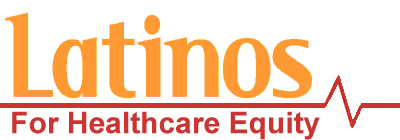« Puerto Ricans Have Been Committing Suicide Nearly Every Day After Hurricane Maria | Main | Piden atención a la crisis de salud »
Puerto Rico’s mental health crisis
By admin | January 29, 2018
My earliest memory of childhood visits to Puerto Rico is the clapping when the airplane wheels touched down on the tarmac in San Juan. Between the applause were also blessings for the pilot and the island, “Ay bendito, que Dios bendiga el piloto y a Puerto Rico” — phrases usually uttered by somebody’s abuela.
The memory made my recent trip to the island more heartbreaking. This time, I was traveling to Puerto Rico as a doctor on deployment for New York City’s ongoing relief missions. When the plane touched down, the silence was deafening, and a chilling reminder that I was arriving at a place very different from the Puerto Rico I remembered.
During my 12-day visit, I heard countless harrowing personal stories of surviving the storm and what life is like in the aftermath. Stories of people dying for a variety of reasons attributable to the devastation, which seemed to confirm the news that the hurricane’s death toll is much higher than initially reported.
Among all the tragedy, what I found most disturbing was that every person I spoke to knew of someone personally, or within a degree of separation, who had attempted or completed suicide after the storm.
Studies have shown that suicides typically increase around eight months after a natural disaster. In Puerto Rico, the increase is starting much sooner, and appears to be affecting people of all age groups, including children.
Puerto Rico’s Health Department collects data on suicide completions, attempts and ideations from a number of sources including hotlines for suicide prevention and poison control.
While suicide rates have decreased in Puerto Rico since 2010, according to preliminary data, suicides in September and October of this year — in the aftermath of the hurricanes — were up roughly 30% compared to the same period for 2016. The data is likely to show only a piece of the full picture as non-functional telecommunications may have affected reports.
The early suicide spike may partly be the result of the complex nature of this natural disaster. Not only did Maria hit Puerto Rico two weeks after Irma, but it decimated an already fragile infrastructure at a time when Puerto Rico was essentially bankrupt.
Before the hurricane, Puerto Ricans were already struggling with the stressors of a severe economic crisis that broke basic support structures, such as stable jobs, savings accounts and family networks, as many left the island in search of better opportunities.
Since the hurricane, stories of acute mental trauma and PTSD are more common. Staff working at Veteran’s Affairs hospitals on the island said that Puerto Rican veterans who fought in Korea and Vietnam are reliving their trauma: The devastated landscape, in conjunction with helicopters surveying the destruction, is reminding them of war.
During my time on the island, I spoke with several mental health professionals who were also parents. They shared stories of their own young children becoming clingy or apprehensive when the sky grew cloudy, frightened in anticipation of another storm. The fear intensified with rain and wind.
One of them contacted me last week with alarming news that two school-age children she knows have recently died from suicide, and she is concerned her staff does not have the capacity to cope with the extreme trauma.
As a public health leader who is also a pediatrician, I am especially attuned to the lifelong impact of traumatic experiences in childhood, which can affect children’s physical, mental and emotional development.
In 2016, the United States census estimated that 56% of children in Puerto Rico under the age of 18 live below the poverty level — more than in any U.S. state. They are under immense pressure, whether from the loss of family members and friends who have left the island; prolonged exposure to darkness; or exposure to adults whose ability to model healthy coping skills has been exceeded by the complex nature of this disaster.
The mental health crisis on the island is an evident reality that grows every day and demands an urgent response. Congress must pass a relief package, now, because a stable energy grid, functional transportation system and relief from crushing debt will help protect the health of American citizens, the children and adults who live in Puerto Rico.
Barbot is New York City’s first deputy health commissioner.
Topics: Uncategorized | No Comments »
Comments are closed.

